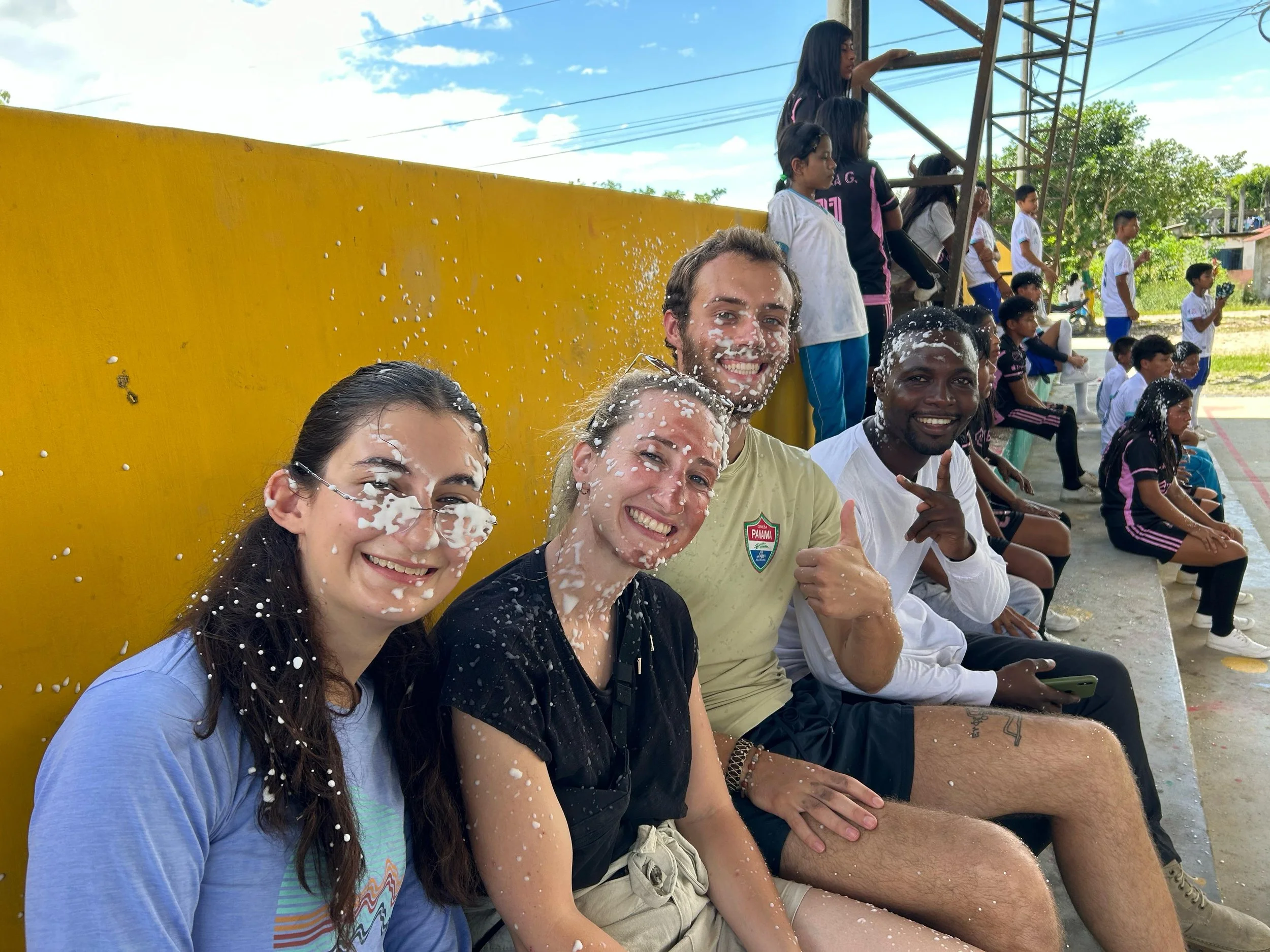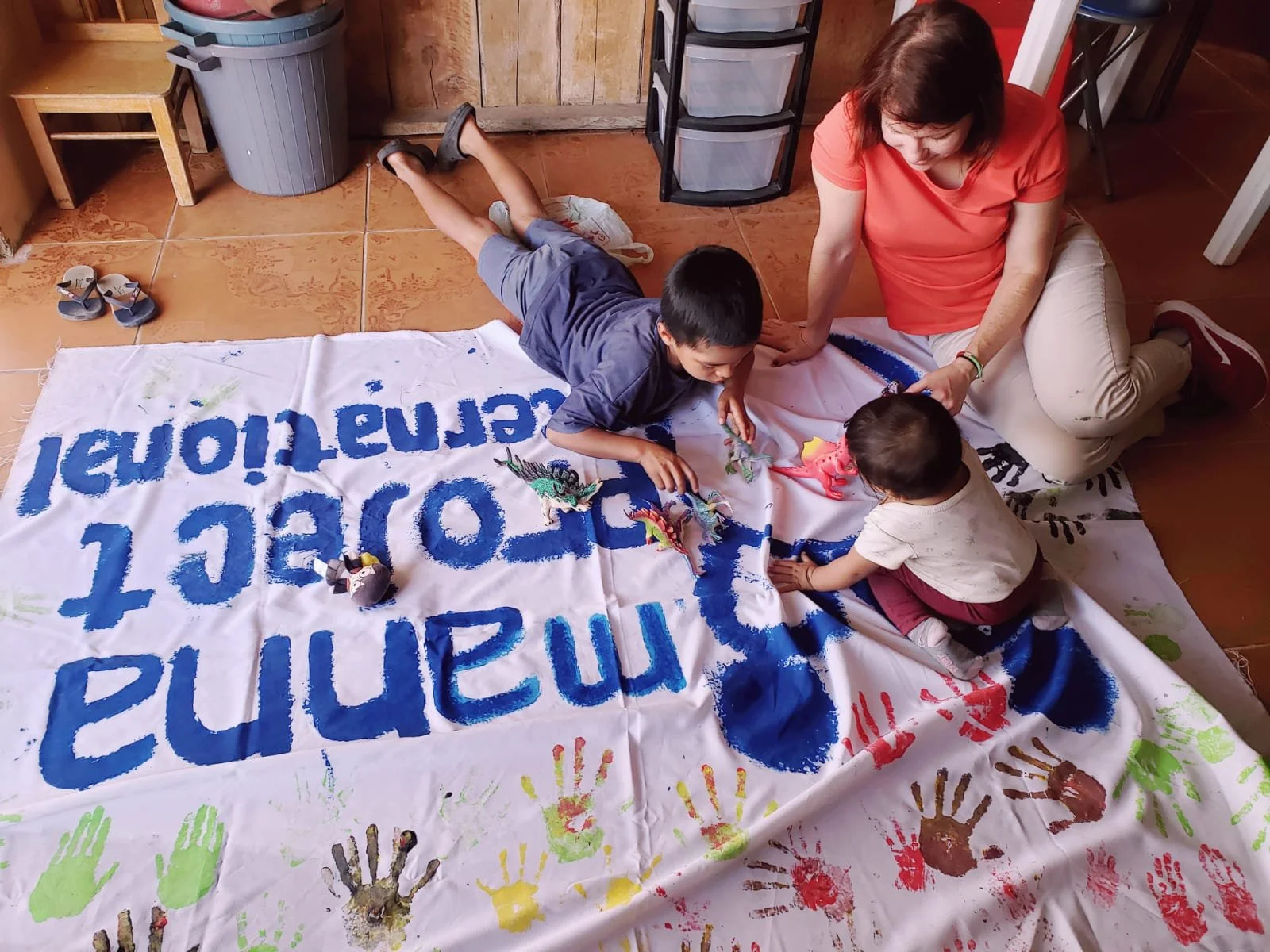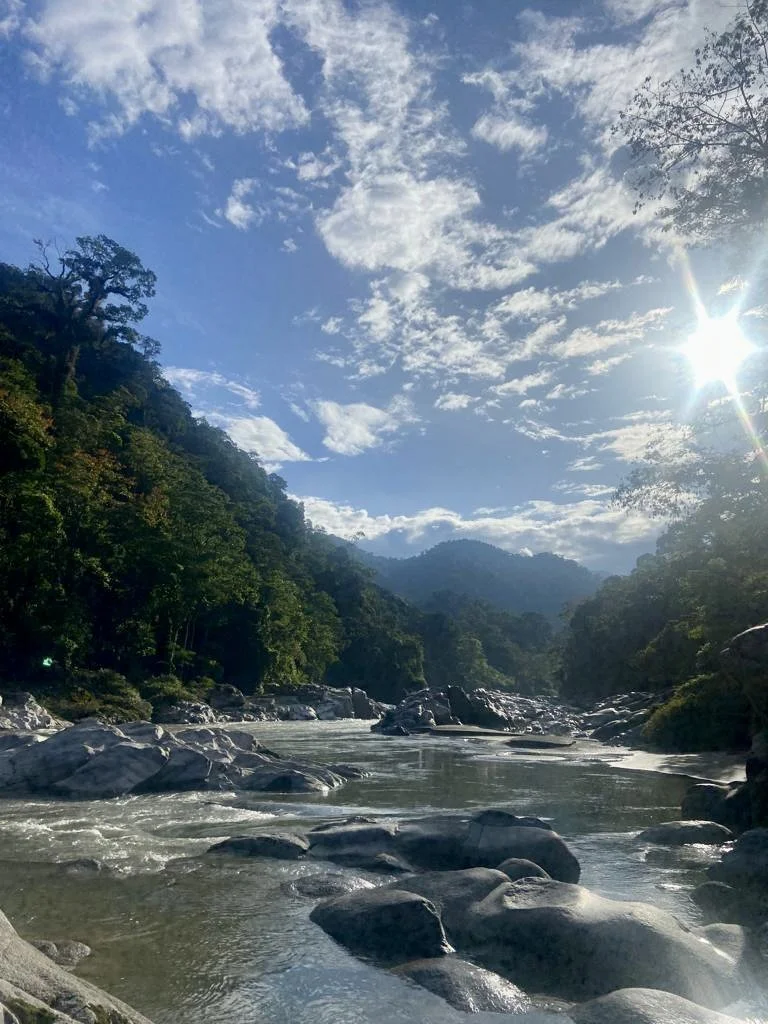By: Liam Atkins
Coming to Ecuador I knew I would love working on eco trails. I have plenty of past experience working on trail maintenance and construction, mostly from volunteering to build mountain biking trails in my home state Colorado. I didn’t know what to expect coming to Ecuador to work on trails, if anything I expected it to be similar to working back in Colorado. I was entirely incorrect. Trail in Spanish is sendero, but sendero has a different meaning in Ecuador. Some work on a sendero involved what I thought it would, digging and moving dirt to build new trails, but a lot of work on the sendero was helping create lodges and trail systems where tourists would stay.
Much of this work involved collecting materials such as water and sand for concrete or rocks to create a path. What was especially rewarding about this work is how appreciative the owners of the sendero were. What was seemingly simple work went a long way and even spending just 1 or 2 hours helping collect materials made a difference in progress for the overall project. The owners even went as far as to make us lunch and repeatedly asked us to come back and work more when we had free time. I felt like the locals appreciated my work and wanted me to keep coming back to help more.
Working on the sendero also gave me a chance to practice my Spanish. As a Spanish beginner, being thrown into a workplace where I am forced to speak and understand the language was daunting. But the other workers were very understanding and I was able to strike up a basic, but meaningful, conversation where I learned about the locals hopes for the sendero as well as stories about living in Shandia and Ecuador as a whole. The language barrier between me and the rest of Shandia was something I was worried about but people were incredibly understand about my limited speaking abilities and some even wanted to practice their English with me as I practiced my own Spanish.
How kind and welcoming the people in Shandia are has been the most rewarding part of my time here in Ecuador. From the kids always saying hello and asking me to go hang out with them to everyone I worked with as a sustainability external being friendly and thankful for my help, spending time in Shandia and working with the community has been one of the most rewarding experiences I’ve ever had. I was nervous traveling to Shandia, not speaking much Spanish and unsure of what my time would be like, but after the first day of my time here, where I was invited to play equivolley in the town center, I felt like I was at home in the community and knew that my time here would be great. Day after day I met more and more lovely people, either spending time in the community or working on the senderos, and I am happy to leave knowing I helped progress a few projects and made countless friends here in Shandia.
Interested in working on senderos in the Amazon? Check out our short term volunteer options here.







